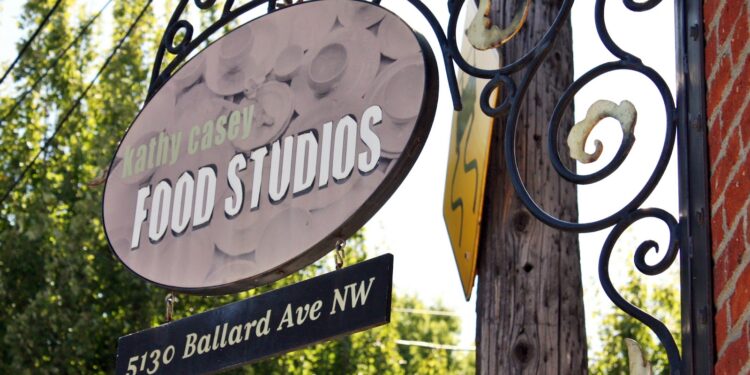Kathy Casey Food Studios has closed its Ballard location after 27 years of operation, marking the end of an era for the consulting firm that helped establish Seattle’s reputation as a culinary innovation hub.
The Food Studios opened in 1997 as a specialized consulting and creative agency focusing on food, beverage, and hospitality concept development. Chef and mixologist Kathy Casey gained national recognition as a pioneer of the “bar-chef” movement, integrating sophisticated culinary techniques with cocktail craftsmanship.
Casey’s influence extends beyond mixology through her work as entrepreneur, cookbook author, and consultant. Her firm developed restaurant concepts, menus, and products for clients ranging from local Seattle businesses to international brands, helping shape contemporary food and beverage industry practices.
The closure reflects strategic business evolution rather than financial distress. Kathy Casey Inc. has increasingly focused on remote consulting work for national and international clients, reducing the need for extensive physical studio space.
“After 27 wonderful years in Ballard, we are proud of our early role in helping to build the vibrant Ballard community,” Casey stated regarding the closure. The company sold its Ballard building in 2021 and leased back portions to facilitate a gradual operational transition.
The business continues operating with a main office on the Vancouver, Washington waterfront and an auxiliary location in Palm Springs, California. Casey maintains three restaurant concepts at Seattle-Tacoma International Airport: Dish D’Lish, Rel’Lish Burger Lounge, and Lucky Louie Fish Shack.
Casey’s Ballard presence coincided with the neighborhood’s transformation from industrial area to culinary destination. Her studios contributed to establishing Ballard as a center for food innovation and restaurant development during Seattle’s broader culinary renaissance.
The Food Studios served as both working kitchen laboratory and event space, hosting industry professionals, media, and clients for product development sessions and culinary demonstrations. The facility’s closure removes a significant resource for local food entrepreneurs and restaurant developers.
While Casey declined to identify the new occupant of her former Ballard Avenue space, she expressed confidence in the incoming tenant. “We know they will be a wonderful steward of the beautiful space, so dear to our hearts, and wish them much success,” she said.
The transition reflects broader changes in consulting industry practices, where digital collaboration increasingly enables remote client relationships without requiring extensive physical infrastructure investments.
Casey’s legacy includes training numerous culinary professionals who have gone on to establish their own successful food and beverage enterprises throughout the Pacific Northwest and beyond.







